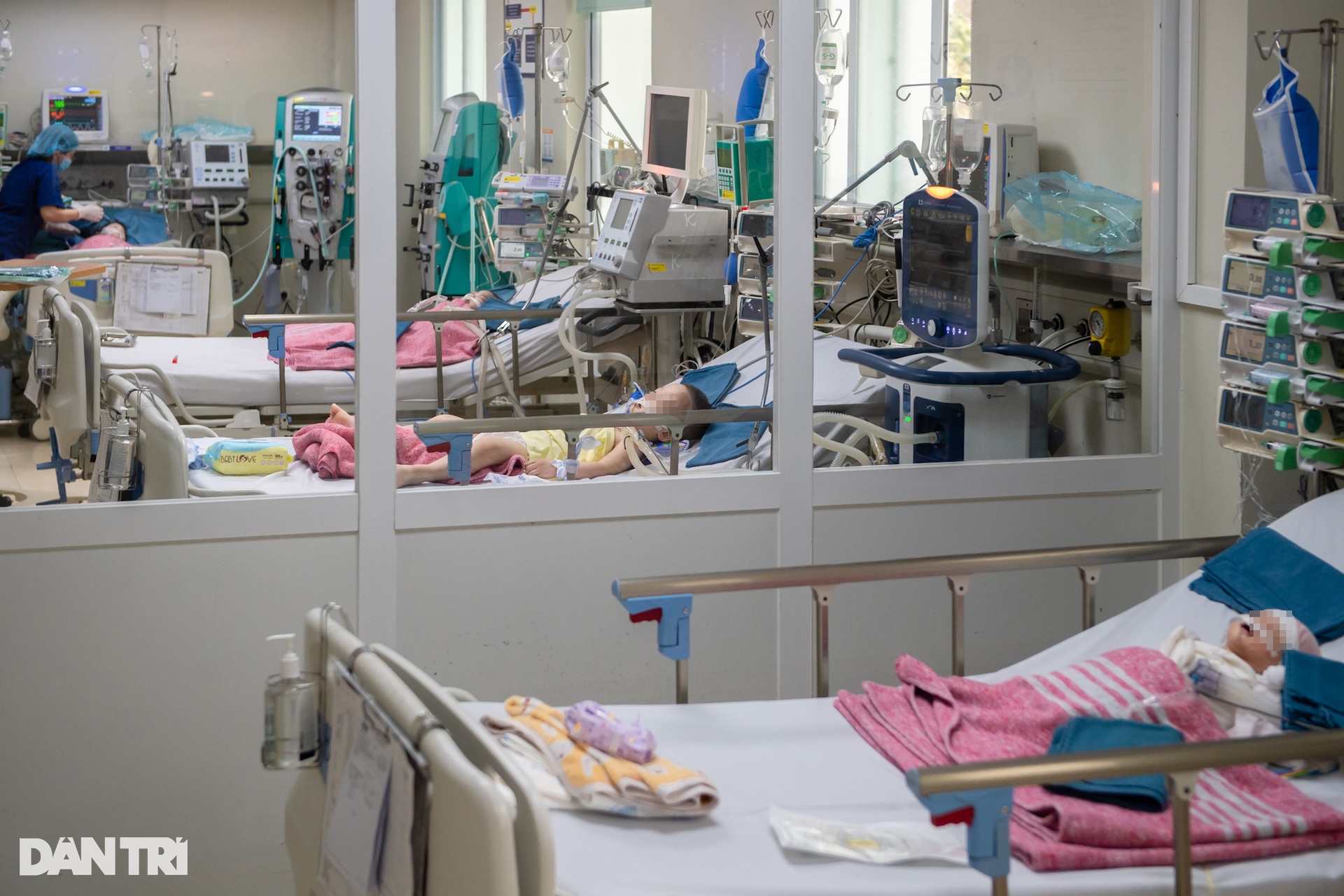
After giving birth, Ms. H. developed symptoms suspected of measles such as fever, rash, cough, sneezing, and runny nose. After self-treating at home and recovering, Ms. H.'s child suddenly developed similar symptoms.
The disease progressed rapidly, and at only 15 days old, the child was hospitalized with high fever, cough, rash, and severe respiratory failure. The patient was intubated and put on a ventilator immediately upon admission.
At the Tropical Disease Center Clinic, National Children's Hospital, the baby was diagnosed with respiratory failure and had to be placed on a ventilator immediately.
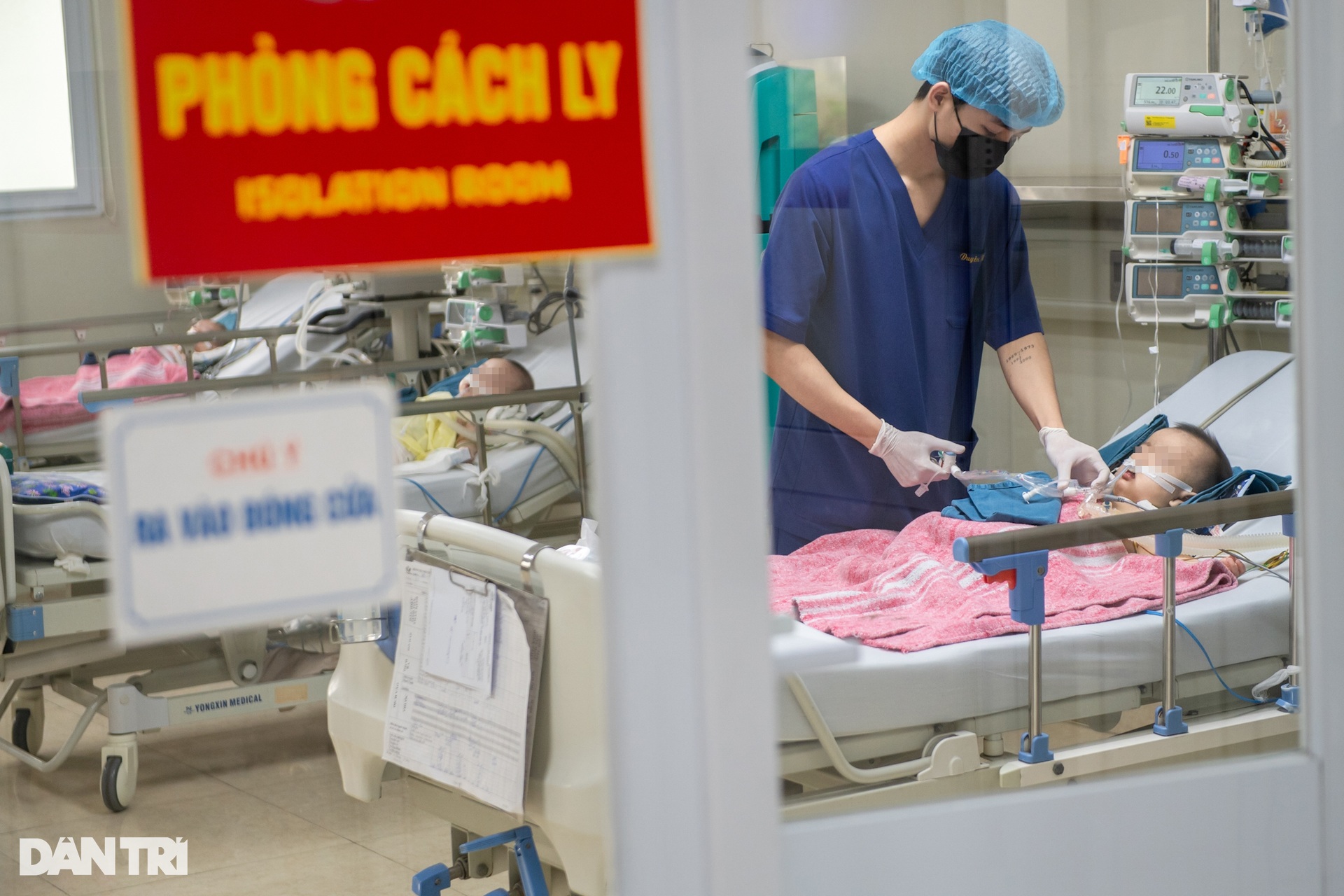
"Through examination and testing, we determined that the child had measles with complications of septic shock - severe pneumonia. Currently, the child is still in very serious condition, requiring a ventilator, vasopressors and intensive care," informed Dr. Dang Phuong Thuy, Center for Tropical Diseases.

This infant is one of more than 40 children with severe measles at the Tropical Disease Center. Of these, 10 patients required invasive mechanical ventilation, 3 patients required non-invasive mechanical ventilation, and more than 30 patients required oxygen support.

According to Dr. Cao Viet Tung, Deputy Director of the National Children's Hospital, from the end of 2024 until now, the number of hospitalized measles cases has skyrocketed.
In June 2024, the hospital received only 9 measles cases. However, from October to December 2024, this medical facility recorded more than 800 measles cases. In the first 3 months of 2025, there were more than 1,700 measles cases hospitalized.
"The number of measles cases recorded in the first 3 months of 2025 is double the total number of measles cases in 2024 combined," Dr. Tung emphasized.

The National Children's Hospital has also developed early plans to respond to the measles epidemic. In particular, screening, triage, and mobilization of treatment resources are planned in detail according to each scenario appropriate to the epidemic's developments.
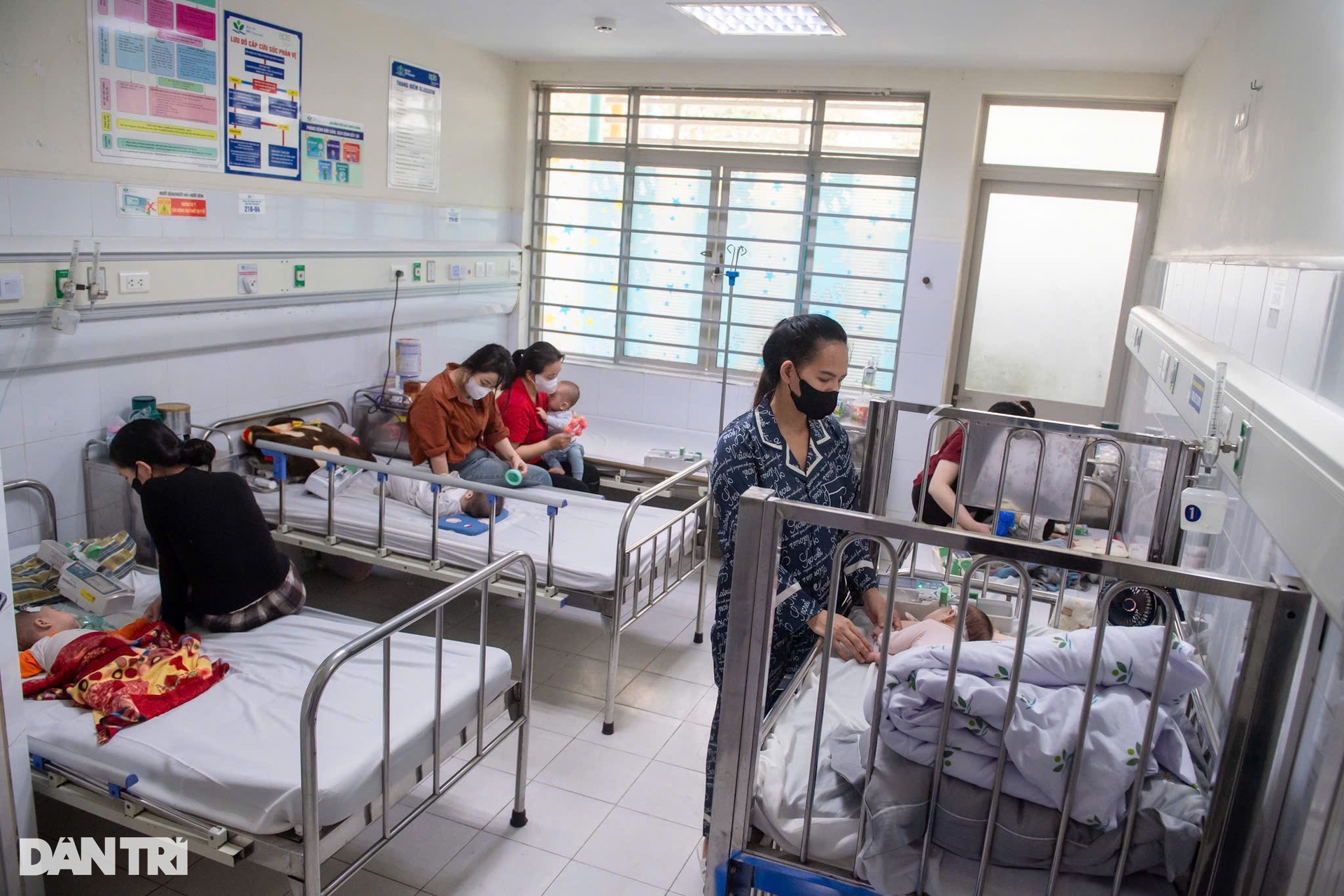
At present, on average, the National Children's Hospital receives 30-40 cases of measles diagnosed every day from the northern provinces. The entire Tropical Disease Center has been dedicated to treating measles patients.
"In the immediate future, the Tropical Disease Center has the capacity to treat nearly 200 beds. If the epidemic becomes more complicated, we have a backup plan to reduce other departments to have more than 200 beds for treatment," Dr. Tung analyzed.
According to statistics, 14% of hospitalized measles patients are children under 6 months old. For children over 9 months old, more than 50% have not been vaccinated or have not been fully vaccinated against measles.
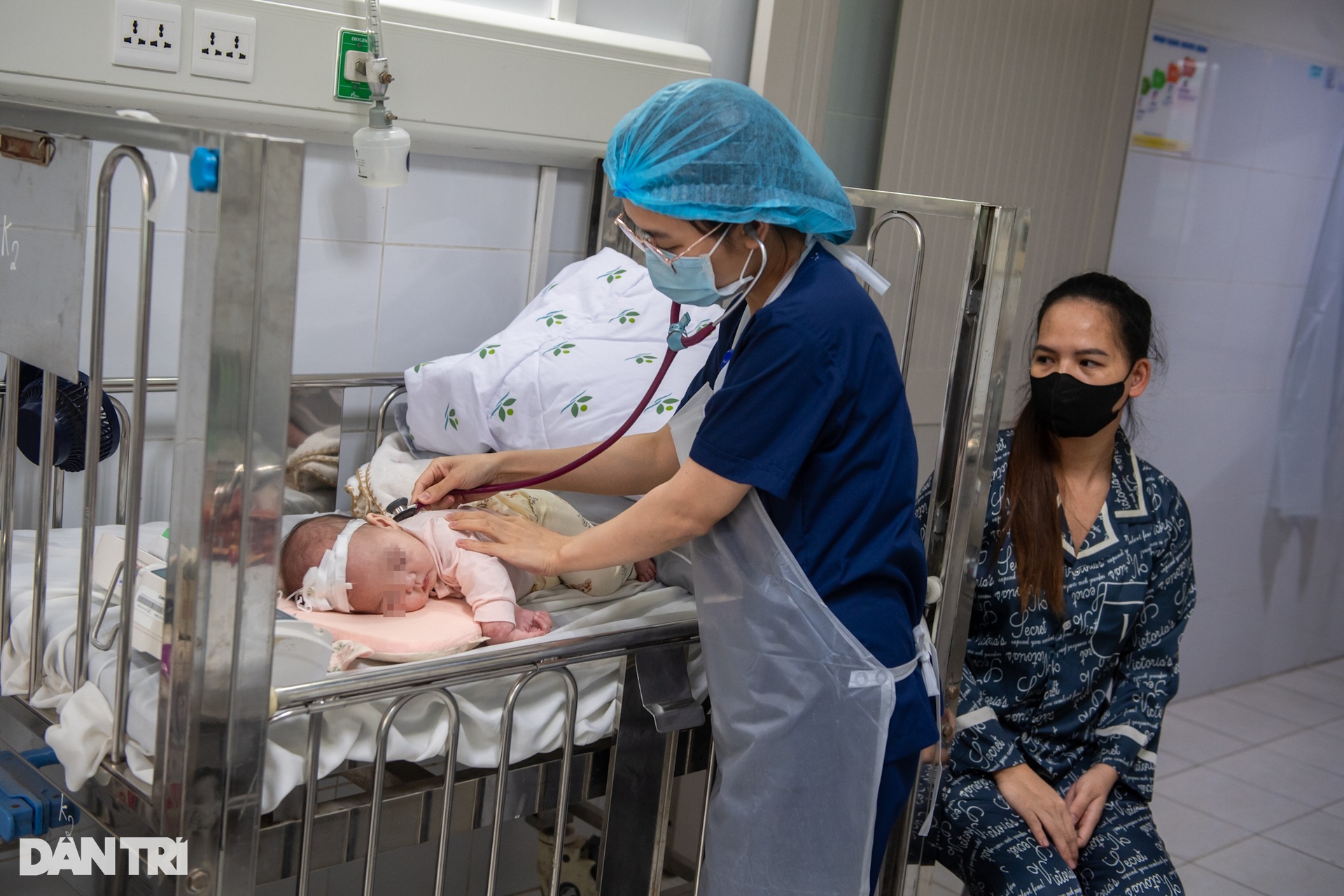
While taking care of her 5-month-old child with measles being treated at the Tropical Disease Center, Ms. TTL (Gia Vien, Ninh Binh ) said that at home, the child had a high fever and cough every 3-4 hours. The family rushed the child to Ninh Binh Obstetrics and Pediatrics Hospital for treatment.
However, after 10 days of treatment, the child's condition did not improve so he was transferred to the National Children's Hospital.
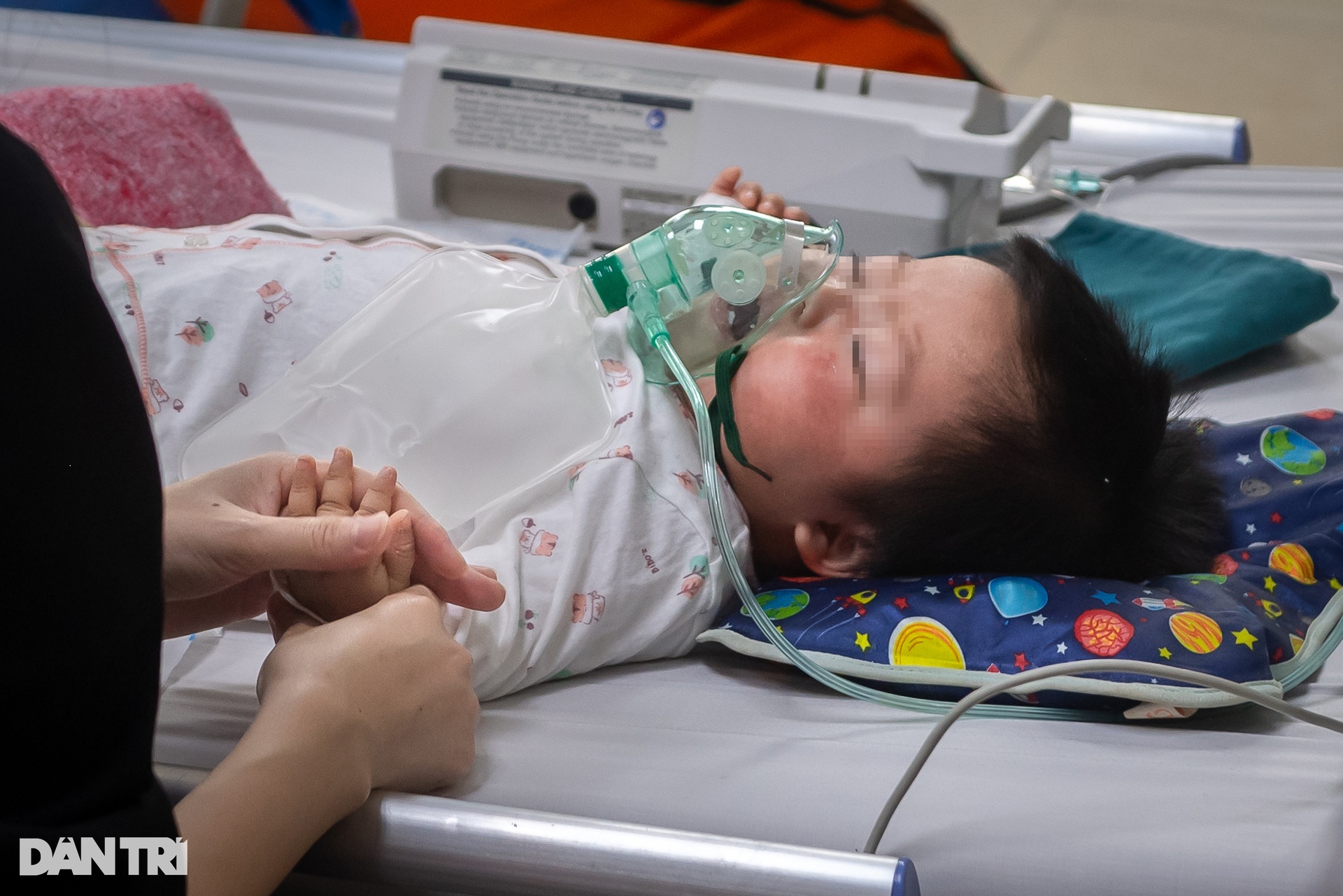
The most severe measles patients are cared for and treated on the 3rd floor of the Tropical Disease Center.
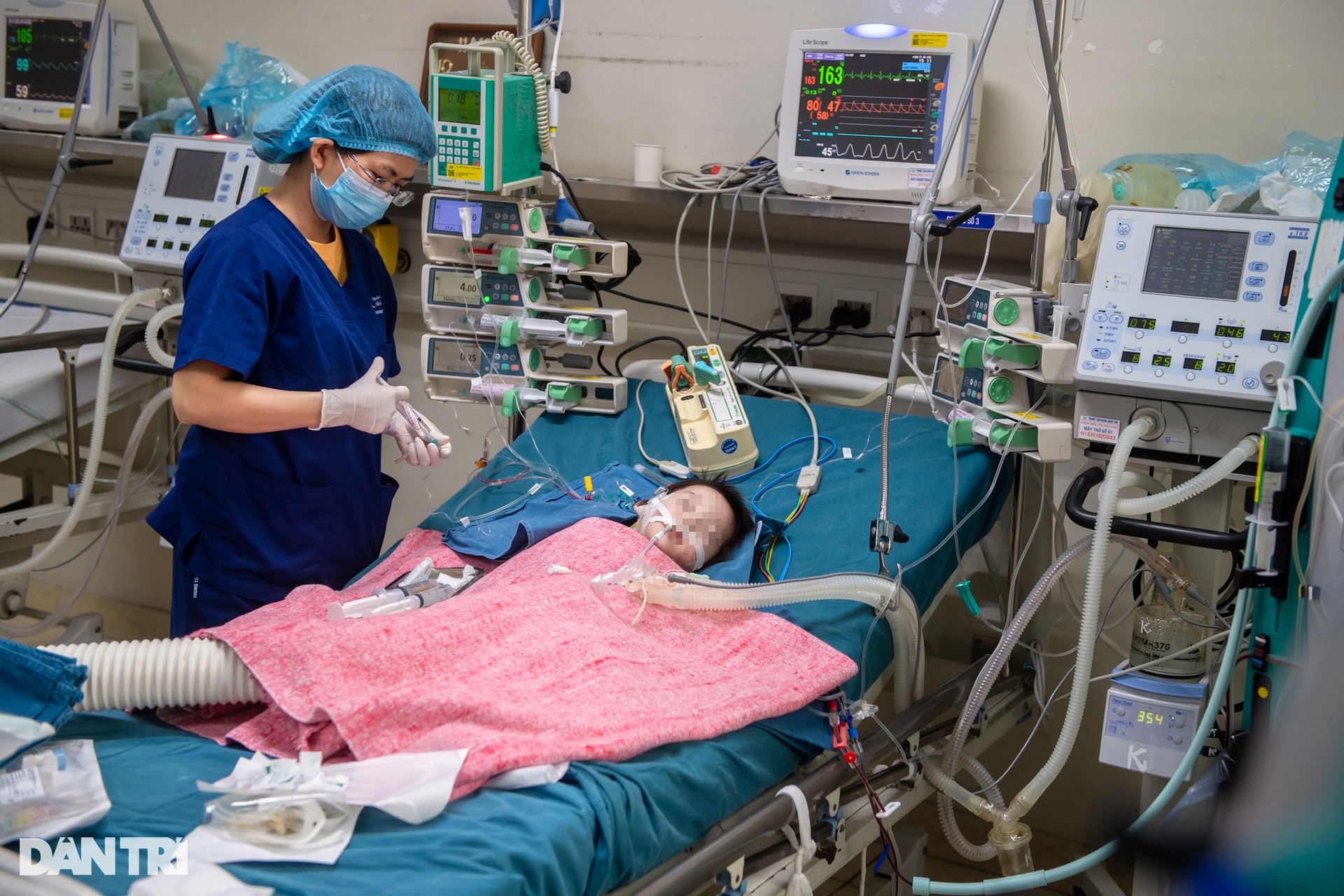
Lying in a bed in the corner of the hospital room, the 15-month-old patient must be kept alive by a series of machines. Notably, this patient has not been vaccinated against measles.
According to Dr. Thuy, the child was hospitalized on the 5th day of the illness in a state of septic shock, severe pneumonia - respiratory failure, requiring invasive ventilation, blood filtration and the use of vasopressors, antibiotics and intravenous gammaglobulin.
Cytokine storm is a state of excessive immune response. This is also the state seen in some severe cases of measles.
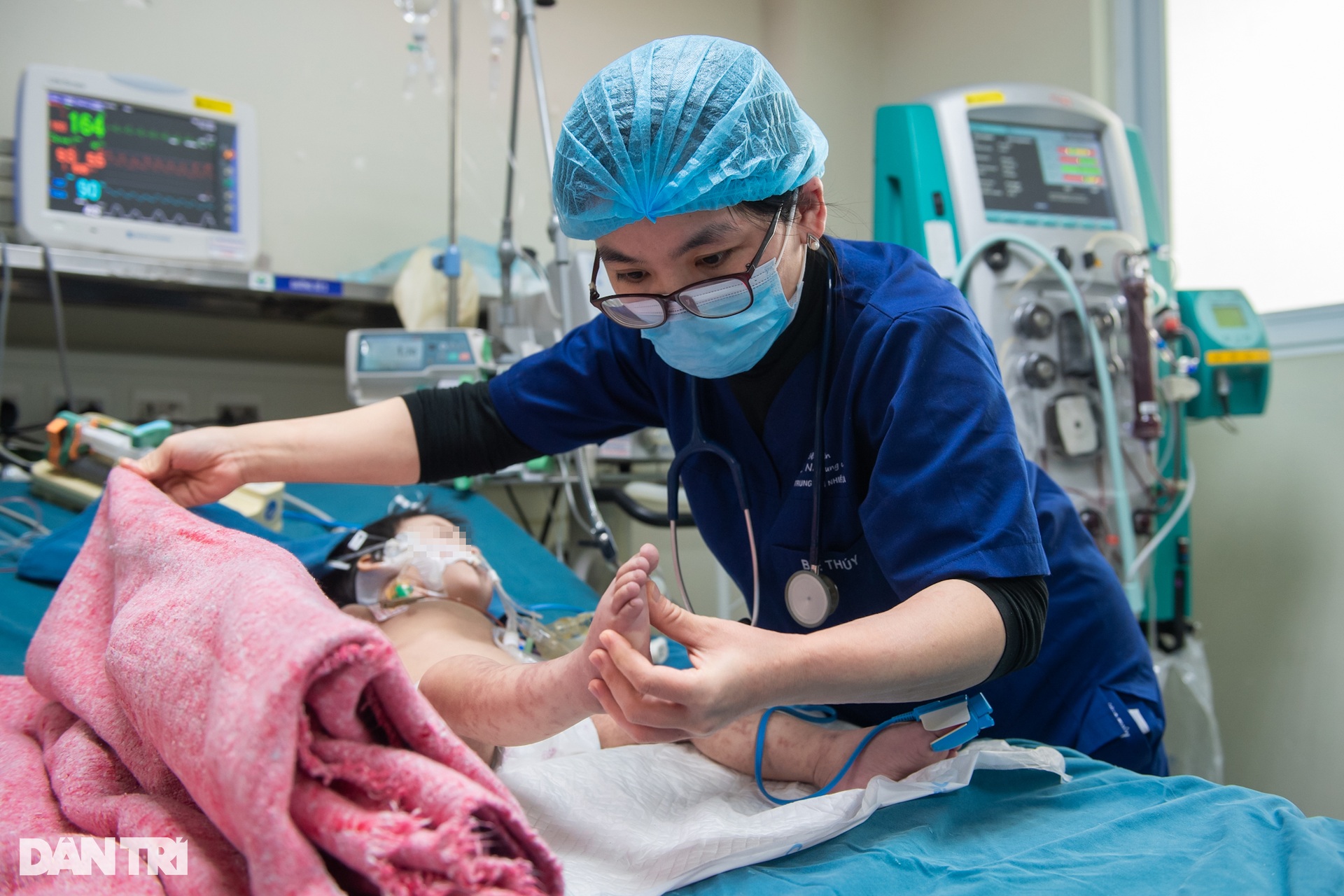
After a week of treatment, the patient's condition improved but the prognosis is still very serious, requiring more intervention. At the current stage, the patient has many infections such as fungal infections and multidrug-resistant bacterial infections.
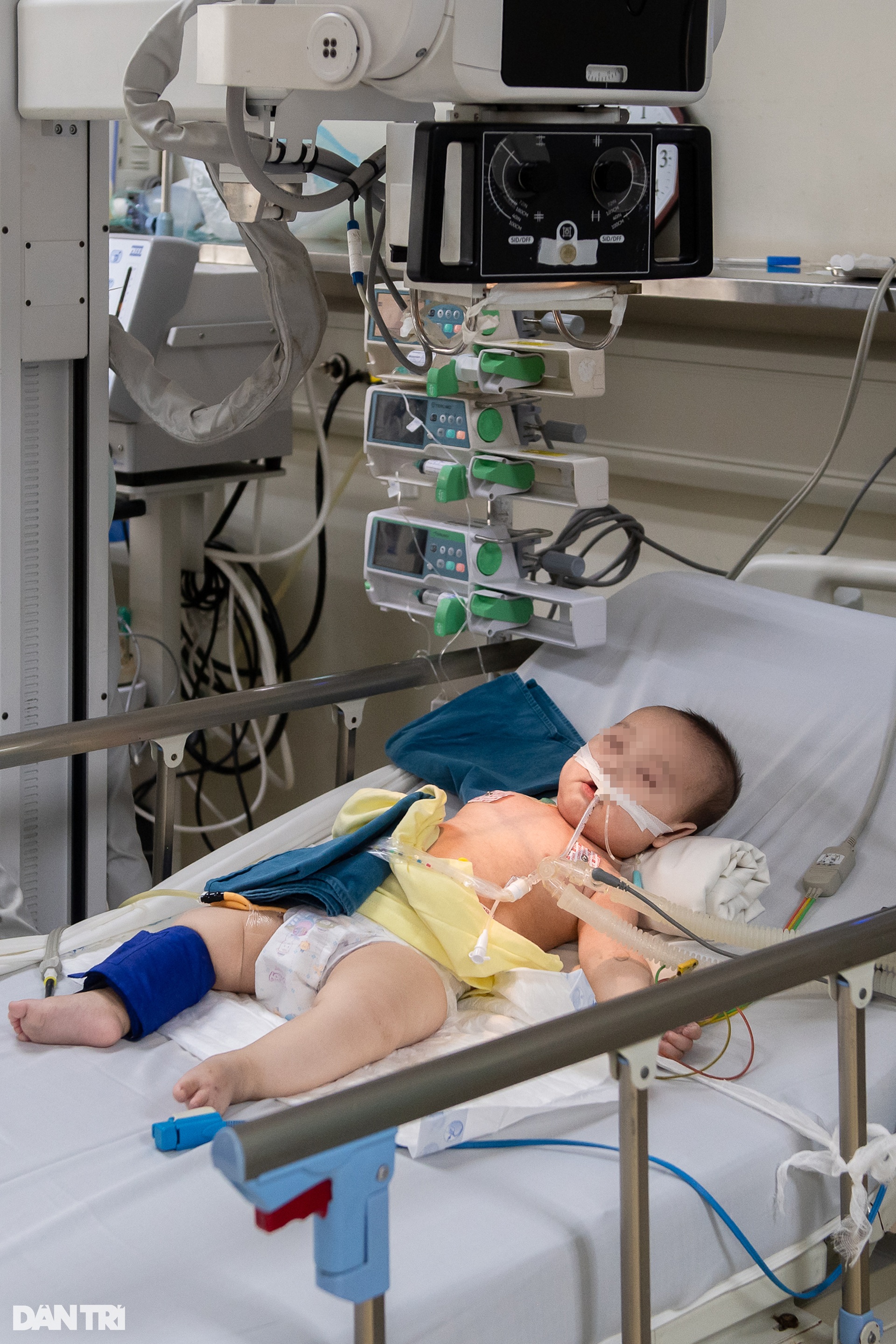
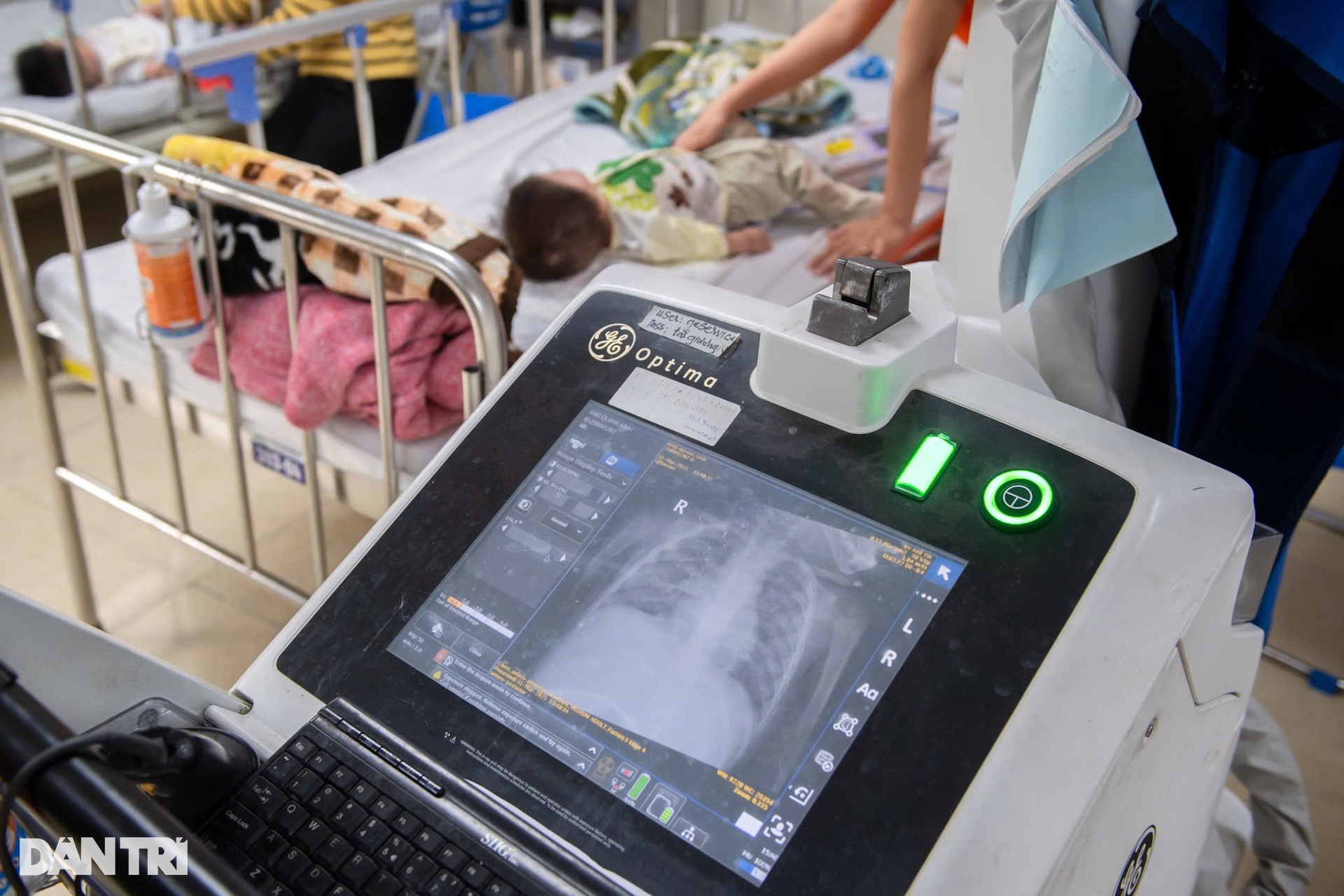
Treating severe measles patients poses many challenges for the medical team. According to Dr. Thuy, caring for children with severe measles in the hospital requires close coordination between doctors, nurses and the patient's parents to ensure good control of the disease and prevent complications.
Care measures include:
- Respiratory support: Children with respiratory failure are supported with oxygen, non-invasive ventilation or invasive ventilation when necessary.
- Management of infections such as pneumonia, otitis media...
- Nutrition and digestive support: Ensure adequate nutrition, monitor digestive status to detect early complications of diarrhea or malnutrition.
- Skin and mucous membrane care: Oral hygiene, pain relief, prevention of complications of oral necrosis and ulceration and pressure ulcers.
- Eye care: Prevent conjunctivitis and keratitis by cleaning your eyes regularly and using appropriate eye drops.
- Monitor neurological complications: Early detection of signs of encephalitis, seizures or other neurological complications for timely intervention.
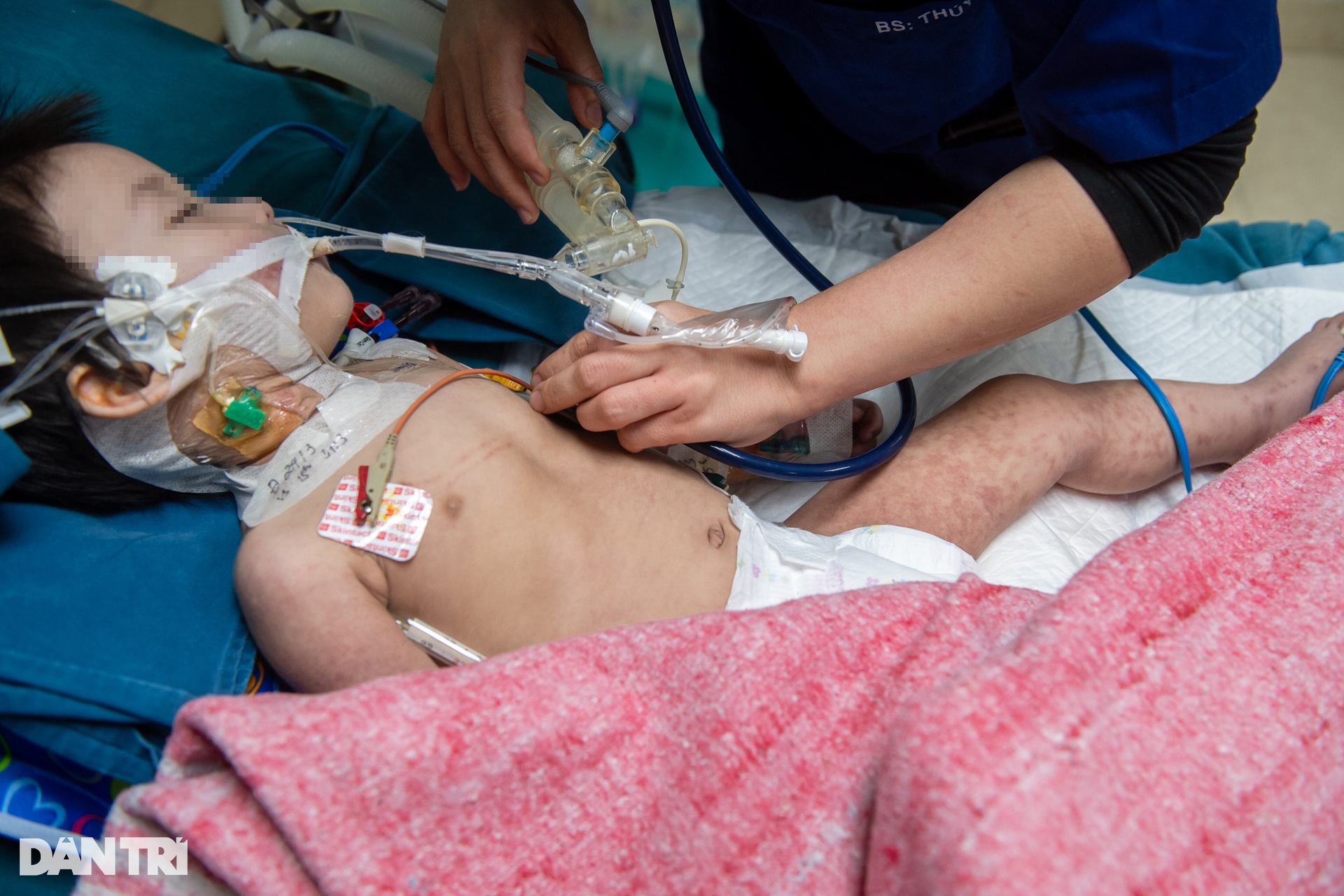
According to Dr. Do Thien Hai, Deputy Director of the Center for Tropical Diseases, the clinical picture of children with severe measles in this year's epidemic is quite similar to the epidemics in 2014 and 2019. The main complications are respiratory failure and organ failure due to increased inflammatory response.
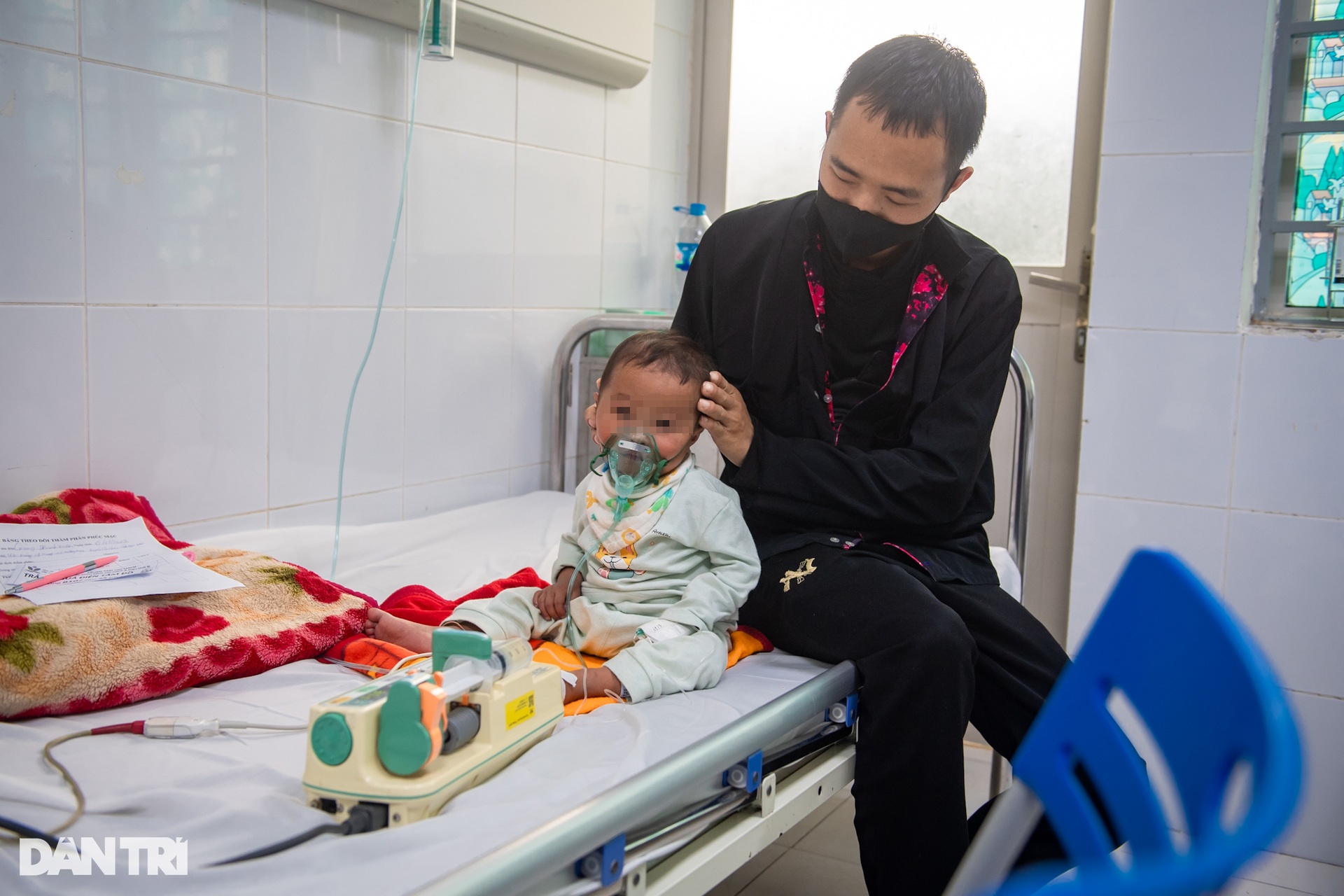
According to this expert, in measles patients that the center receives, the most common and difficult-to-treat complication is superinfection or co-infection with other microorganisms in the respiratory tract. This condition can easily lead to severe pneumonia and increase the severity of the disease.

According to Dr. Tung, the National Children's Hospital still has adequate medicine, diagnostic equipment and treatment staff for measles patients.
Source: https://dantri.com.vn/suc-khoe/moi-ngay-40-ca-soi-nang-vao-vien-tuyen-cuoi-cang-minh-chong-bao-cytokine-20250331234523320.htm



![[Photo] Party and State leaders attend the special art program "You are Ho Chi Minh"](https://vphoto.vietnam.vn/thumb/1200x675/vietnam/resource/IMAGE/2025/5/18/6895913f94fd4c51aa4564ab14c3f250)
![[Photo] Special flag-raising ceremony to celebrate the 135th birthday of President Ho Chi Minh](https://vphoto.vietnam.vn/thumb/1200x675/vietnam/resource/IMAGE/2025/5/19/1c5ec80249cc4ef3a5226e366e7e58f1)
![[Photo] Party and State leaders visit President Ho Chi Minh's Mausoleum](https://vphoto.vietnam.vn/thumb/1200x675/vietnam/resource/IMAGE/2025/5/19/d7e02f242af84752902b22a7208674ac)





































































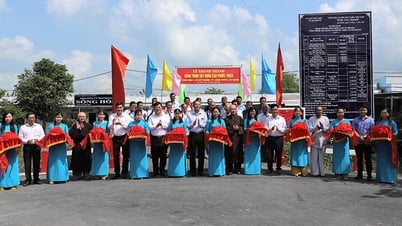


![[VIDEO] - Enhancing the value of Quang Nam OCOP products through trade connections](https://vphoto.vietnam.vn/thumb/402x226/vietnam/resource/IMAGE/2025/5/17/5be5b5fff1f14914986fad159097a677)







Comment (0)